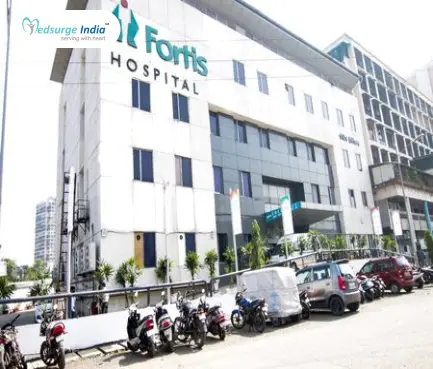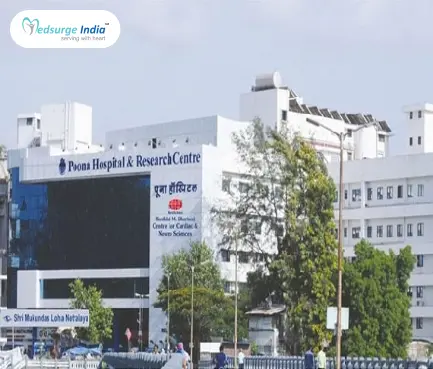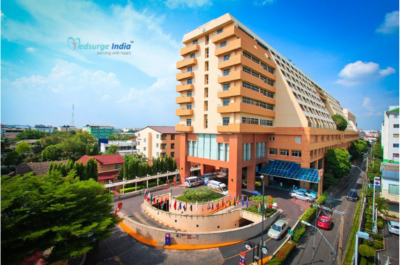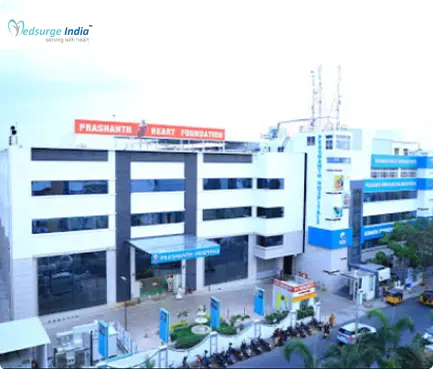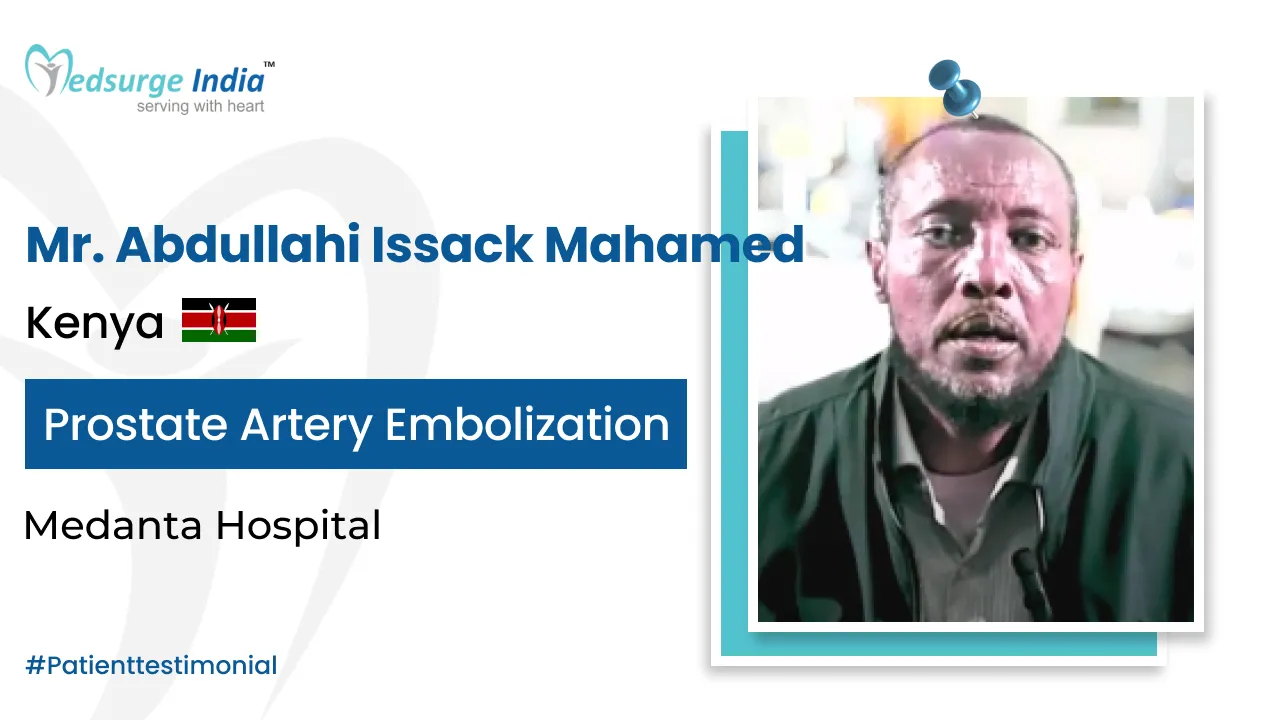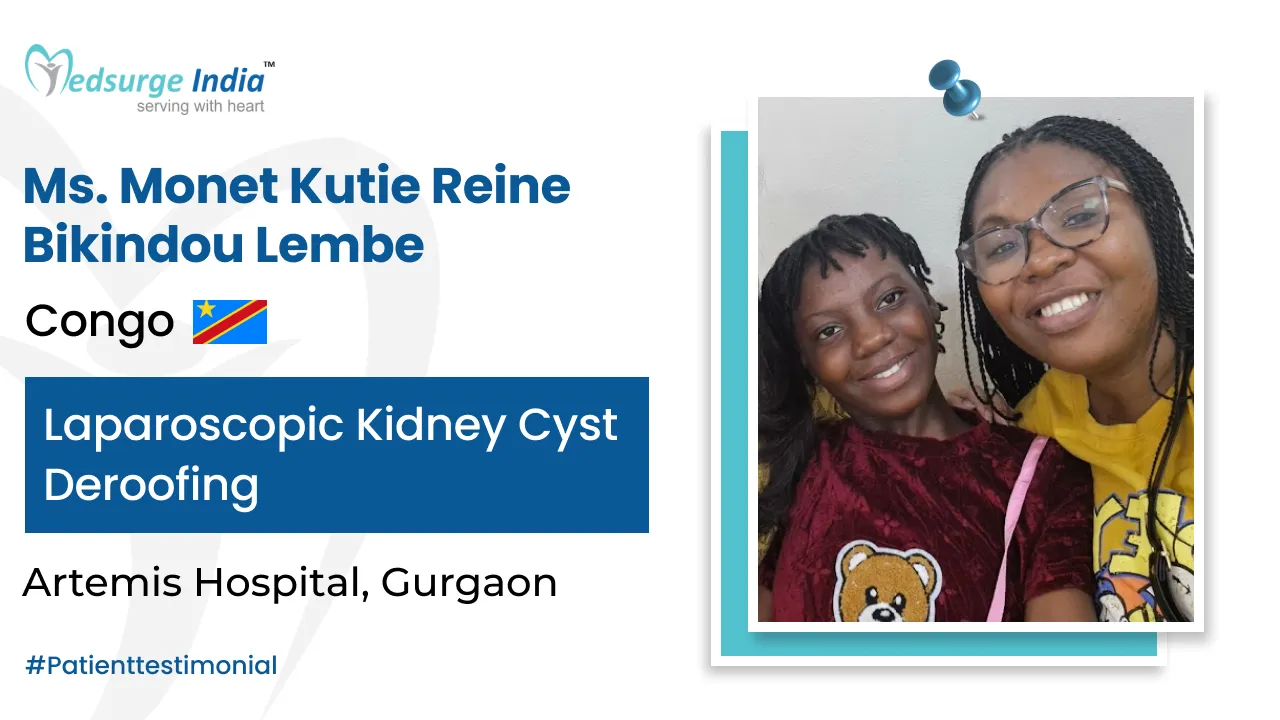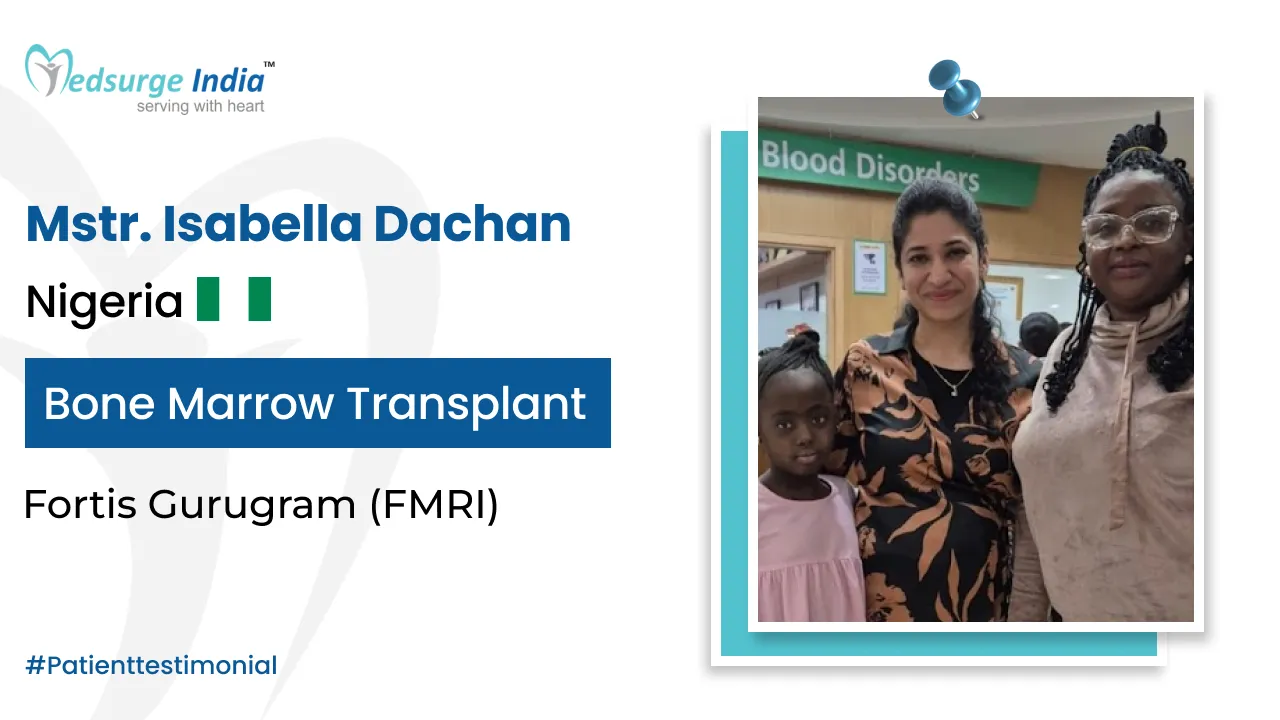
Patients with irregular or abnormal heartbeats or heart rhythms should consider Atrial Fibrillation treatment in India. Arrhythmia is a type of irregular heartbeat caused by abnormal cardiac muscle twitching. A person with atrial fibrillation has a heart that beats too rapidly, too slowly, or breathes abnormally. The name comes from the fact that the heart muscles “fibrillate” instead of moving in a normal, coordinated manner.
In India, there are various top hospitals for atrial fibrillation therapy. These hospitals are located in large metropolitan areas and other places that have direct flights to all major countries. Delhi, Mumbai, Goa, and Chennai are among the cities in India with the top atrial fibrillation treatment hospitals. Hyderabad, Bangalore, and Gurgaon are three cities in India. Apart from the low cost of atrial fibrillation therapy in India, patients prefer to come to the nation for arrhythmia treatment for a variety of reasons, including the higher quality of care, the availability of highly experienced doctors, and the lack of long waiting times for the treatment.
What Is Atrial Fibrillation?
Atrial fibrillation is a heart disorder that causes irregular and typically fast heartbeats. It happens when abnormal electrical impulses in the atria unexpectedly start firing. These impulses overpower the natural pacemaker of the heart, which can no longer control the heart’s rhythm. Your pulse rate becomes extremely unpredictable as a result of this.
The muscular walls of the heart contract when it beats normally, forcing blood out and around the body. They then relax, allowing the heart to refill with blood. Every time the heart beats, the procedure is repeated. The atria, or upper chambers of the heart, contract irregularly and sometimes so quickly in atrial fibrillation that the heart muscle cannot relax correctly between contractions.
Atrial fibrillation can be classified into three categories.
- Paroxysmal Atrial Fibrillation: Normally lasts less than a week and goes away without treatment.
- Persistent Atrial Fibrillation: that lasts more than a week and requires therapy.
- Long-term persistent Atrial fibrillation: It is difficult to treat because it lasts more than a year.
What Are the Symptoms of Atrial fibrillation?
Atrial fibrillation may or may not cause any symptoms, or the symptoms may occur only occasionally.
With Atrial fibrillation, the heart rate is frequently greater than normal. The frequency of the signals experienced by the atria and how quickly they are transmitted to the ventricle, however, will determine a person’s heart rate.
Common symptoms of Atrial fibrillation include:
Palpitations, or the sensation of an irregular heartbeat, can cause dyspnea, especially during physical activity.
- Low blood pressure
- Chest pain, pressure, or discomfort.
- Extreme Fatigue and uneasiness
- Dizziness, lightheadedness, and fainting
If a person has no symptoms of atrial fibrillation, the condition may continue untreated. If you will not get treatment, you could end up with consequences like a stroke or heart failure.
If you have Atrial fibrillation or any suspect of that, pay attention to when your symptoms appear or alter in severity. Keeping track of these changes might help doctors make a diagnosis and decide on the best treatment.
What Causes Atrial Fibrillation to Start?
Atrial fibrillation is caused by changes in your heart’s tissue or electrical system. Typically, these alterations are brought on by coronary artery disease or excessive blood pressure. Atrial fibrillation is frequently triggered by a fast heartbeat. However, determining the source of a triggered heartbeat might be difficult at times. There is no identifiable cause for some persons.
Atrial Fibrillation is frequently passed down through generations. If a close relative has Afib, you have a “family history” of acquiring it as well.
Atrial fibrillation is more likely to develop if certain conditions are present. These include:
- Age
- Hypertension
- Pulmonary Embolism
- Heart Disease
- Over Alcohol Consumption
- Family History
- Sleep Apnea
Atrial Fibrillation Treatment Cost in India
On average, Atrial Fibrillation Treatment Cost in India starts from USD 750. The cost of Atrial Fibrillation Treatment in India will depend on the type of hospital or the location you choose.
Estimated prices depending on different cities in India
| Cities | Starting Price |
| Delhi | USD 750 |
| Gurgaon | USD 780 |
| Noida | USD 750 |
| Mumbai | USD 780 |
| Hyderabad | USD 750 |
| Chennai | USD 750 |
| Kolkata | USD 750 |
| Bangalore | USD 780 |
Note: Do remember that the pricing and the treatment for Atrial Fibrillation Treatment cost in India will vary depending on the patient’s choice and other various factors.
Factors That Can Affect Atrial Fibrillation Treatment Cost in India
The following here are some variables that can affect Atrial Fibrillation Treatment Cost in India:
- Medication costs.
- Duration of treatment.
- Geographical location.
- Hospitalization expenses.
- Government policies and subsidies.
- Medical tourism packages.
- Hospital reputation and infrastructure.
- The expertise and experience of medical professionals.
- The type and frequency of diagnostic procedures.
- The choice of treatment modality.
Furthermore, even the standard and grade of medical care and amenities are comparable to those of the most prestigious healthcare facilities in the world, even when the expense of lodging, meals, and transportation is taken out. Also, under the direction of the most skilled physicians, Medsurge India provides patients with the lowest Atrial Fibrillation Treatment Cost in India.
How the Diagnosis of Atrial Fibrillation Is Done?
It may be difficult for a patient to diagnose atrial fibrillation symptoms on their own. A series of physical and diagnostic exams, including an electrocardiogram, is required to diagnose the condition. A doctor may order a few further tests to confirm the diagnosis of atrial fibrillation. Electrophysiologic tests, echocardiography, and blood tests are all possible. Because thyroid gland levels and function can lead to atrial fibrillation, blood tests particularly look at thyroid gland levels and function.
Get Free Cost Estimation
Procedure
How Atrial fibrillation Is Treated?
Medications and surgery are two approaches to the treatment of atrial fibrillation. The doctor may decide to prescribe a few drugs to address the underlying condition or perform surgery to implant a pacemaker to control the heart’s rhythm, among other things, depending on the patient’s health. The two most commonly available treatments for atrial fibrillation in India are as follows:
Medications
To treat the disease, doctors may give one of the three drugs listed below:
- Anti-arrhythmic drugs: These medications are given to patients in order to restore their heart’s natural rhythm. After receiving a dose of these medications, the patient may be required to stay in the hospital so that the rhythm can be closely monitored for any abnormalities and necessary repairs.
- Rate control drugs: Medicines that control the heart rate are referred to as rate control drugs. These work directly on the ventricles to keep them from beating too quickly. Beta-blockers and calcium channel blockers are examples of these medications.
- Anticoagulants: These drugs operate by lowering the chance of blood clots, which can lead to atrial fibrillation.
Surgery
When drugs cannot be given to a patient for some reason or when they do not function as well as expected, then surgery to manage or repair atrial fibrillation may be required. A variety of surgical procedures are performed to treat atrial fibrillation. The doctor may select one of these based on the patient’s needs and circumstances. Surgical Procedures are the following:
- Pacemaker Implantation: A pacemaker is a medical device that alters the heart’s rhythm. It is an electrical device that is implanted beneath the patient’s skin and monitors his or her heart rate. If the heart rate is too slow, electrical impulses are sent to the heart’s walls, which causes it to beat. As a result, the pacemaker’s electrical impulses assist in maintaining the heart’s normal rhythm.
- Catheter ablation: This operation destroys the weak region of the heart that is causing it to beat abnormally. This is a highly specialized treatment that should only be performed by a skilled surgeon.
- Electrical cardioversion: Delivering a small, regulated electrical shock to the heart muscles in order to change its rate. The patient’s heart rate is constantly monitored both during and after the surgery.
- AV node ablation: A catheter is carefully placed into a vein in the groin region and reached up to the AV node during this surgery. The AV node is then destroyed with radiofrequency energy, preventing signal transmission from the atrium to the ventricle. Because this is a permanent operation, the patient will require a permanent pacemaker after the surgery.
Other Surgical Treatment Approach
Patients with an irregular heart rhythm who have been unsuccessfully treated with catheter ablation or medicines will need major surgery. It is also done in patients who have had a stroke, have an enlarged atrial, or have blood clots in the atrium.
The Maze procedure is the name of the surgical operation. Several small incisions are made during this technique to define a channel for electrical impulses to reach the AV node. As a result, the impulses are utilized to protect the atria from being affected, resulting in atrial fibrillation.
Open surgery can be used to do this technique, or newer technology such as cryotherapy, ultrasound, laser, radiofrequency, or microwave radiation can be used instead.
Keyhole surgery can also be used to perform the treatment in a minimally invasive manner. In some circumstances, where atrial fibrillation is caused by another heart problem, surgery to treat that condition may be required. Atrial fibrillation will finally be corrected.
Suggestion
Medical experts in India have a lot of experience diagnosing and treating persons with atrial fibrillation and other heart rhythm problems. Most Indian hospitals have cardiologists (specialists experienced in diagnosing and treating heart diseases), cardiovascular surgeons (doctors specializing in heart surgery), and other doctors who collaborate to examine and treat persons with atrial fibrillation and other heart rhythm disorders. Atrial fibrillation and other heart rhythm disorders are extensively researched in Indian hospitals, which also perform clinical trials and use the most up-to-date technologies in atrial fibrillation and heart rhythm disorder treatment, such as catheter radiofrequency ablation.
The Most Important Frequently Asked Questions
Q: Are There Any Treatments for A-Fib?
A: Catheter ablation, Atrioventricular node ablation (AVN), and Maze procedures are available, as well as minimally invasive and robotic-assisted surgeries.
Q: How Will I Be Able to Determine Which Treatment Is Best for Me?
A: It depends on what kind of A-fib you have. Your doctor will advise you on the best treatment for your overall health after a comprehensive evaluation and review.
Q: What Is the Surgery’s Success Rate?
A: The following is the success rate:
A-fib is a young person with no known cause: The success rate of 70% to 80%
Older and still suffering from cardiac problems: 40 – 60%
The procedure was repeated: 85 – 90%
Q: How Long Will You Be in the Hospital?
A: You may be discharged after 6–8 hours of rest or an overnight stay if the procedure is Catheter ablation. However, monitoring and rehabilitation from an open-heart surgery might take up to 5 days of surgical treatments.
Q: What Are the Conditions for Obtaining a Medical Visa in India?
A: You can apply for a medical visa to India if you have a valid passport and visa and are seeking medical treatment in a recognized and reputable facility in India. Under separate attendant visas, the patient can be accompanied by up to two blood relations.
Top Hospitals for Atrial Fibrillation Treatment in India
Top Doctors for Cardiology And Cardiac Surgery
Dr. Gaurav Agarwal
Senior Consultant
Experience: 11+ years of experience
Narayana Multispeciality Hospital, Barasat, Kolkata
Kolkata, India
Dr. Shreesha Rao
Senior Consultant
Experience: 19+ years of experience
Sahyadri Narayana Multispeciality Hospital, Harakere, Shimoga
Shimoga, India
Dr. Vivek G
Senior Consultant
Experience: 16 years of experience
Kauvery Hospitals, Electronic City, Bangalore
Bangalore, India
Dr. Swati Garekar
Senior Consultant
Experience: 31 years of experience
Fortis Hospital, Mulund, Mumbai
Mumbai, India
Dr. Subroto Kumar. Datta
Consultant
Experience: 13 years of experience
Venkateshwar Hospital, New Delhi
New Delhi, India
Dr. Ramesh Arora
Chief
Experience: 43 years of experience
Metro Hospital & Cancer Institute, Preet Vihar, New Delhi
New Delhi, India
Dr. Mukul Bhargava
Interventional Cardiologist, Consultant, DM, MD, MBBS
Experience: 9 years of experience
Fortis Memorial Research Institute, Gurgaon
Gurgaon, India
Dr. P K Hari Kumar
Senior Consultant
Experience: 27+ years of experience
NH MMI Narayana Superspeciality Hospital, Lalpur, Raipur
Raipur, India
Dr. Rishab Mathur
Consultant
Experience: 14 years of experience
Metro Mas Hospital, Jaipur
Jaipur, India
Dr. Subir Kumar Ghose
Experience: 39+ years of experience
NH Rabindranath Tagore International Institute of Cardiac Sciences, Kolkata
Kolkata, India
Dr. N. Dhananjaneya Reddy
Consultant
Experience: 10 years of experience
Sunshine Heart Institute, Secunderabad, Telangana
Hyderabad, India
Dr. Sougata Sanyal
Senior Consultant
Experience: 11+ years of experience
Narayana Multispeciality Hospital, Barasat, Kolkata
Kolkata, India




